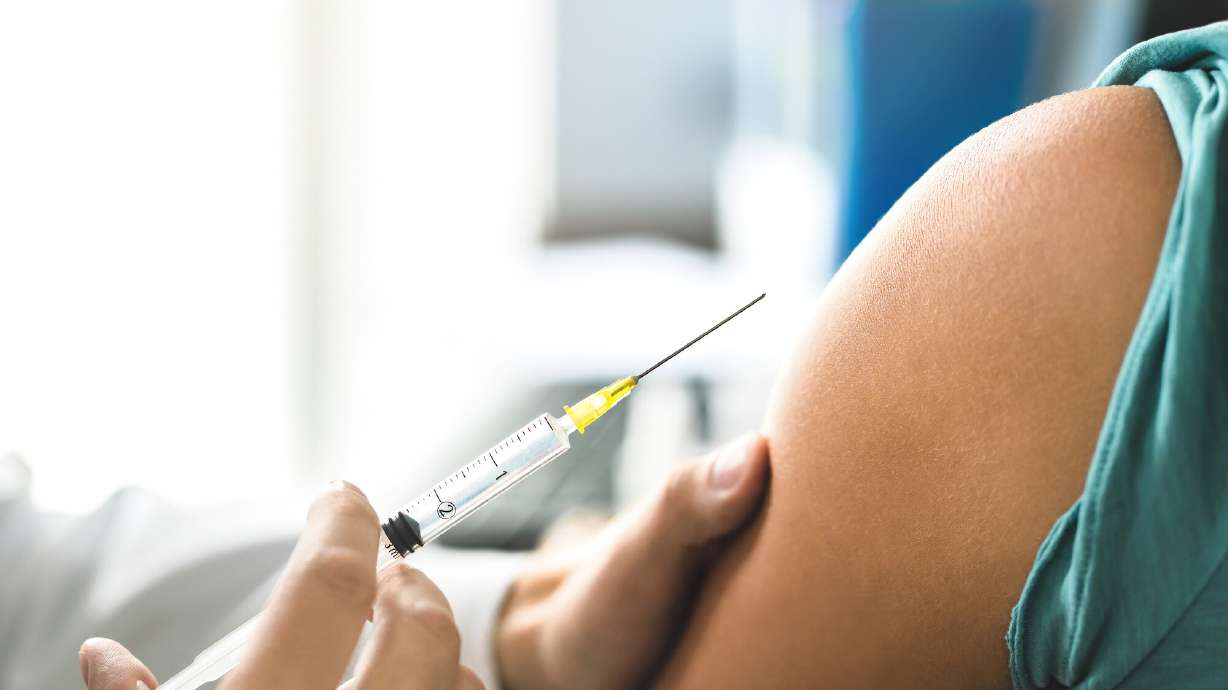WASHINGTON - Nearly 20,000 people in the United States were hospitalized for the flu last week, nearly double the number of admissions from the previous week, according to data updated Friday by the U.S. Centers for Disease Control and Prevention.
The CDC estimates there have been at least 8.7 million illnesses, 78,000 hospitalizations, and 4,500 deaths from the flu this season.
In a letter to the nation's governors Friday, U.S. Health and Human Services Secretary Xavier Becerra notes that influenza and other respiratory viruses are "increasing pressure" on the nation's health care systems.
In a letter obtained exclusively by CNN, Becerra wrote that the Biden administration "stands ready to continue to assist you with resources, supplies and personnel."
Last month, children's health officials asked the federal government for a formal emergency declaration to support hospitals and communities amid "alarming increases in childhood respiratory illnesses, including respiratory syncytial virus and influenza, along with an ongoing emergency for children's mental health."
The Biden administration has not declared an emergency for RSV or the flu, but Becerra's letter outlines ways a public health emergency declaration for COVID-19 can be used to more broadly address the challenges posed by the confluence of COVID-19 and other respiratory and seasonal illnesses.
“The administration has applied regulatory flexibility to help health care providers and suppliers continue to respond to COVID-19. These flexibilities—while critical to addressing the COVID-19 pandemic—can also help address many of the challenges you face during the spread of the COVID-19 disease. – Illnesses of COVID-19, including RSV and influenza,” the letter reads. "They remain available to you and healthcare providers as you all make care available in response to influenza, RSV, COVID-19 and other illnesses."
For example, if a hospital has staff shortages that have been exacerbated by the COVID-19 pandemic, it can use a waiver to allow for increased surge capacity or easier patient transfers — even if the patients need treatment for something other than COVID-19, such as the flu or RSV.
The letter also highlights available funding, including $400 million from the US Centers for Disease Control and Prevention for annual preparedness and response to public health threats, including influenza and other respiratory diseases such as RSV, along with data, analysis and other planning resources . compiled by the federal government. He also notes that the federal government is monitoring the supply chain for critical drugs and equipment, and that federal health officials have been speaking with the nation's governors over the past month through a meeting hosted by the National Governors Association.
"As your federal partner, we stand ready to evaluate any request for federal medical assistance and support — including requests for medical personnel and equipment — in close coordination with you and local jurisdictions to determine needs and availability of appropriate resources," Becerra wrote. .
Flu activity was highest in the South, with hot spots extending from El Paso to Southwest Virginia. All but six states are experiencing "high" or "very high" levels of respiratory viruses, and seasonal flu activity remains "high and increasing," according to the CDC.
There have been nearly 17 flu hospitalizations for every 100,000 people this season, which is usually in December or January. The cumulative number of hospitalizations at this point in the season has not been this high in more than a decade.
The most recent tracking data likely doesn't reflect the full effects of holiday gatherings because it only captures Nov. 26, two days after Thanksgiving.
While the flu is still on the rise, RSV is showing signs of slowing nationwide, but the positivity rate is still higher than it has been in years and the cumulative hospitalization rate is about 10 times higher than typical for this time of the season. In less than two months, the number of RSV hospitalizations this season is already approaching the total number of RSV hospitalizations from the entire 2018-19 season.
There is no vaccine for RSV, but health officials have urged people to get a flu shot and update on COVID-19 boosters heading into winter. With the holiday season underway—and flu season—Dr. Anthony Fauci warned this week of a possible emergency.
"When you have a very small intensive care bed room, when you have like almost all intensive care beds occupied, it's bad for kids who have RSV and need intensive care. But it also takes up all the beds and kids who have a number of other illnesses that they need intensive care or the ICU, they don't have a bed for that," Fauci, director of the National Institute of Allergy and Infectious Diseases, said on CBS' "Face the Nation" on Sunday. "So if you get into that situation, it's an emergency.




0 Comments